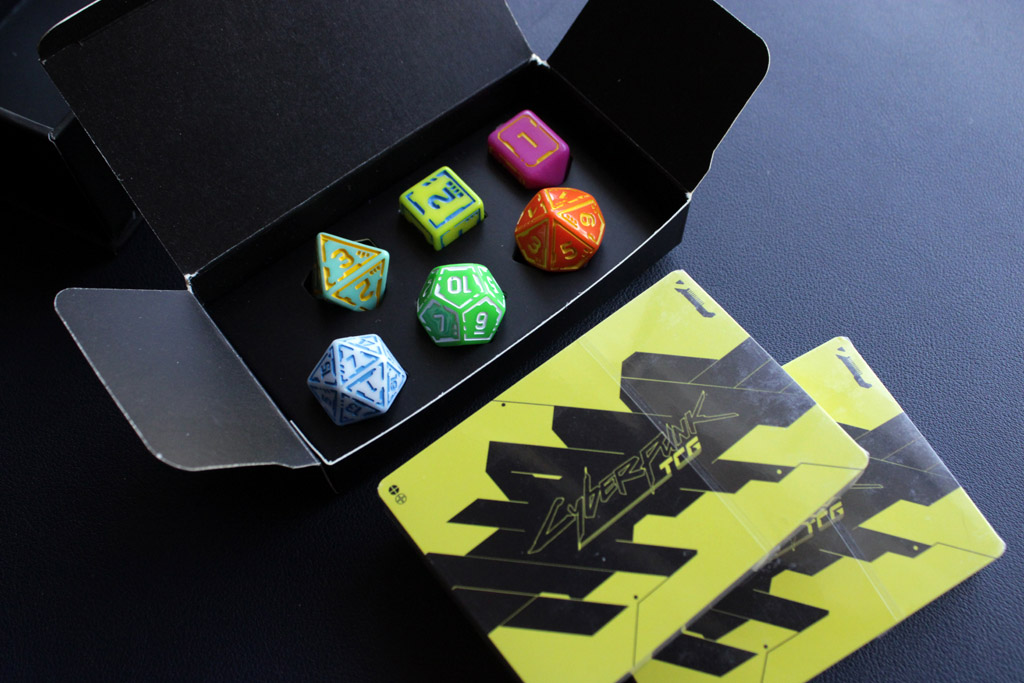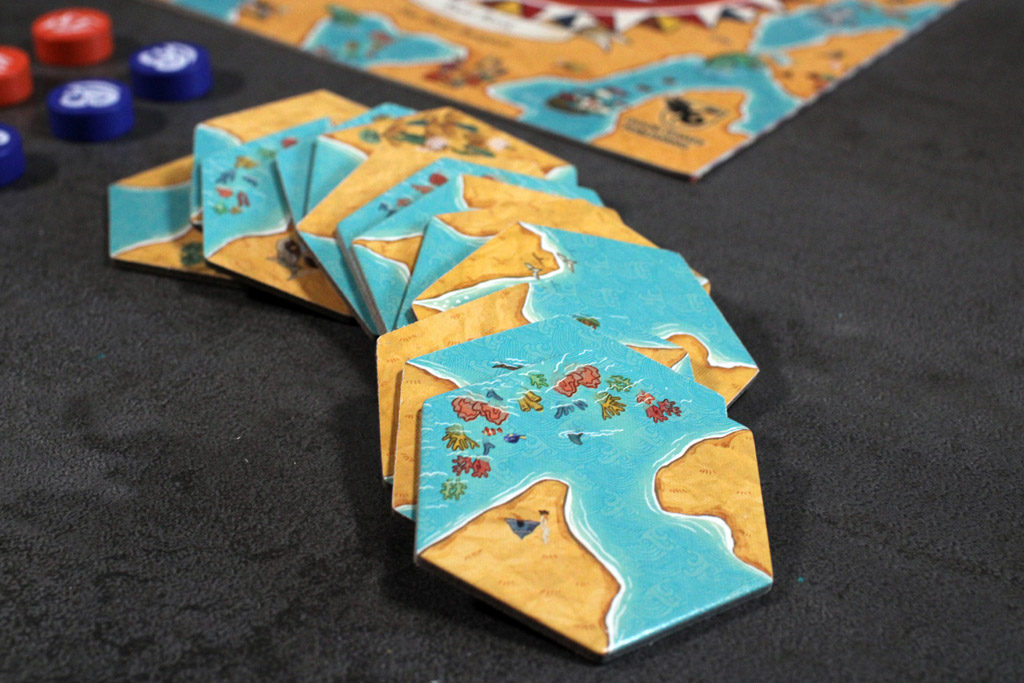If there is one gateway game that pulled our family into modern card and board games it’s Jaipur. Created by Sébastien Pauchon, it’s quick, engaging, fun, and easy enough to learn that my son was beating us at age six. We have bought this game for many friends and also enjoy the delightful iPad version.
Jaipur is a two player card game that was originally published by Asmodee in 2009. The game consists of 55 nicely printed cards of and 60 tokens. Players take on the role of merchants in the city of Jaipur, competing to become the most prosperous trader. The game is won by earning the most victory points, which are earned by selling goods and acquiring camels.

Jaipur players each take five cards and a market of goods and camels is placed between them. The goods consist of leather, silk, spices, silver, gold, and rubies which fill the market five at a time.
Rounds are simple: you can take one card to add to your hand of goods or you can sell goods (cards) at the market. Once you take either action, your turn ends. If you sell more than three of a good, you make a bonus.

The twist to this seemingly straightforward game is the camels. The deck is filled with camels which appear in the Jaipur market and during any round you can take all of the camels (you must take all of the camels if you take them). The camels can then be used during a future round to trade for goods (if you took three camels you can now grab three of any good). The player with the most camels at the end of the game gets an additional bonus.
The goal of Jaipur is to “receive two seals of excellence and be invited to the court of the Maharaja.” What that means in practice is make more money and gain more points by selling goods when prices are high and balancing moments to grab the camels or improve your collection of goods.
Tips for winning Jaipur
- Focus on selling goods quickly: Try to acquire as many cards of a single type of good as possible, and sell them all at once when the market is favorable. This will earn you victory points and gold, which can be used to acquire more valuable goods and camels.
- Acquire camels: Camels are used to transport goods and can be used to block your opponent from acquiring valuable goods. Additionally, camels are worth victory points at the end of the game, so acquiring as many camels as possible can help you earn more victory points.
- Anticipate your opponent’s moves: Keep an eye on your opponent’s actions and try to anticipate their moves. This way, you can block them from getting valuable goods or camels and make sure you’re in a better position to win the game.
- Manage your gold: Be mindful of when to spend it and when to save it. Spend gold when the market is favorable and when you can acquire valuable goods or camels, but also make sure you save enough gold to buy more goods or camels later on.
- Pay attention to the end game: Try to have the most valuable cards in your possession when the game ends, as they’ll give you the most Victory Points.
- Be adaptable: Jaipur is a game that rewards players who can adapt to the changing market conditions and outmaneuver their opponents, so make sure to be ready for any situation that may arise during the game.
- Be aware of the card in the market: Keep track of the cards in the market, it will help you to have an idea what cards your opponent may have.
- Don’t forget to take the tokens: Tokens are worth victory points, so make sure to take them when you can.
Interesting tidbit – Jaipur was a real place located in the northwestern part of India. It was the first planned city in India.
Please use this link if you’d like to purchase a copy of Jaipur and simultaneously support our site.
Jaipur by Asmodee Official Website





Pingback: Euphoria: Build a Better Dystopia | Creative Game Life
Pingback: Karuba: Treasure Hunting Board Game | Creative Game Life
Pingback: Board Games and TTRPGs for Kids Home From School